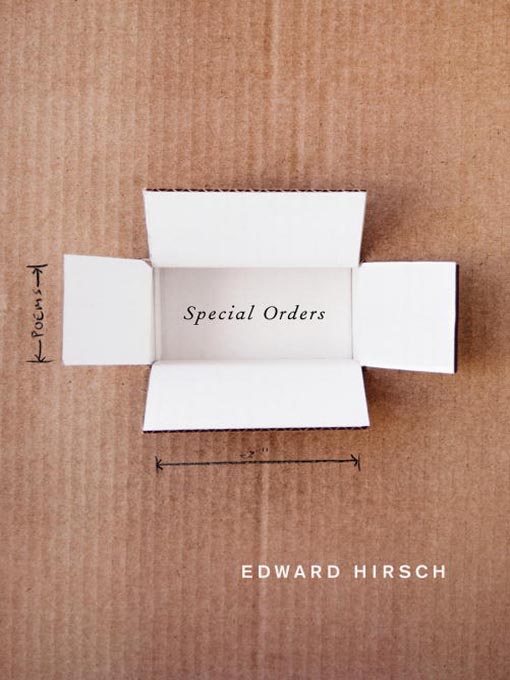
Special Orders
Poems
- اطلاعات
- نقد و بررسی
- دیدگاه کاربران
نقد و بررسی

February 25, 2008
This seventh from the popular Hirsch (Lay Back the Darkness
) brings its demotic, heartfelt, autobiographical pieces together to form a picture of Hirsch's whole life, with sadness always visible, but joy in the foreground. He begins with his immigrant “grandfather,/ an old man from the Old World”; remembers “the second-story warehouse” where the young poet “filled orders for the factory downstairs”; and moves on to his own life as a struggling, and then a successful, writer, teacher and father. Jewish and Yiddish heritage, in memory and on canvas (Chaim Soutine, Marc Chagall) pervades the first half of the volume—“Gone are the towns where the shoemaker was a poet,/ the watchmaker a philosopher, the barber a troubadour.” The second half follows Hirsch as an adult, to Houston (where he taught for many years) and back to New York City, where he now heads the Guggenheim Foundation. Closing poems present a passionate new love affair: “I wish I could paint you,/ your lanky body, lithe, coltish, direct.” No one will question Hirsch's sincerity nor his commitment to lyric tradition. Many will be moved by the frankness and vulnerability of these difficult self-assessments: “I'm now more than halfway to the grave/ but I'm not half the man I meant to become.”

Starred review from February 15, 2008
One might expect that the more adept and practiced the poet, the more intricate and elaborate the poems, yet the opposite often occurs as the poet seeks the essence of the matter at hand. In his seventh collection, Hirsch, who so ardently shares his knowledge of poetry as an essayist, editor, and critic, continues to inlay his radiant poems with intriguing literary, mythological, and historical allusions. Yet he never fails to be clear and emotionally present, and in his newest, masterfully distilled poems, he achieves even greater degrees of immediacy and intimacy. A poet of conscience, Hirsch mourns for the lost Jewish villages of Poland. Deeply responsive to art, he writes with dramatic intensity about the paintings of Soutine. Hirschs striking tributes to his late father, who worked for a box and paper company, are working-class elegies built to measure with dignity and strength. His self-portraits are witty and wistful, whether he is capturing quicksilver youth in Branch Library with its birdy boy perching and pecking among the books or, in unsparing and cathartic poems of midlife, tallying the inevitable accruing of regrets and wrenching change. Hirsch trusts languages powerto illuminate and heal, and his achingly beautiful poems do nothing less.(Reprinted with permission of Booklist, copyright 2008, American Library Association.)




دیدگاه کاربران